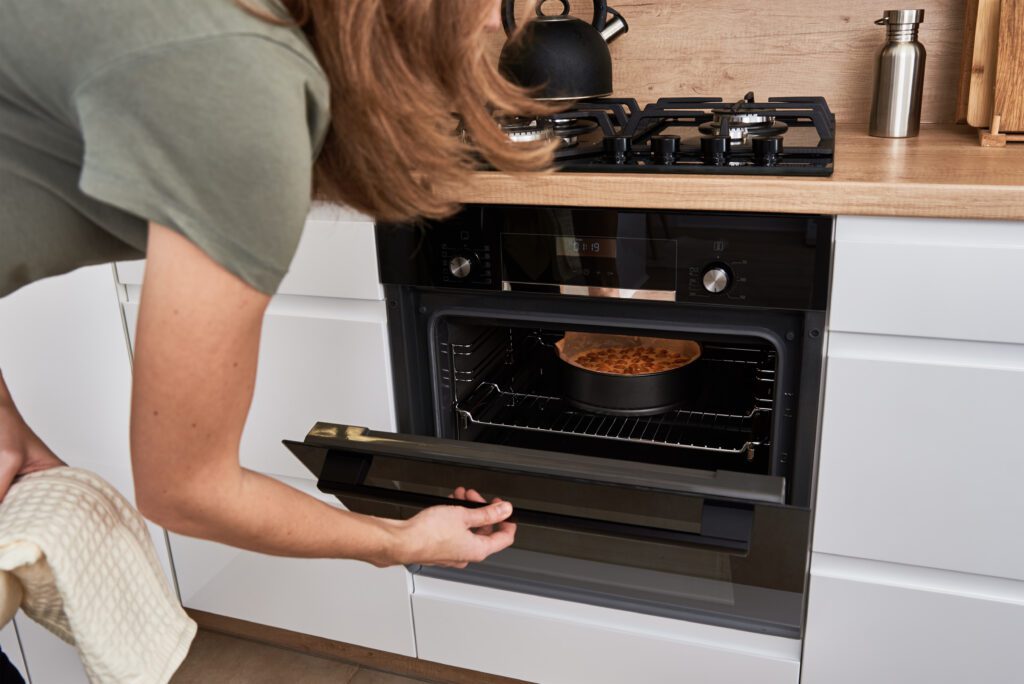Gas Stoves vs Electric
When it comes to kitchen appliances, a home cook has a lot of choices. Two popular types of cookers are gas stoves vs electric. But which one is better? That depends on what you’re looking for in an oven. Gas stoves are known for their consistent heating capabilities, so they’re great if you want to be able to adjust the temperature quickly and accurately. Plus, many chefs prefer the taste that food cooked on a gas stove can have compared to an electric range. On the downside, gas stoves require more maintenance than electric ranges and can be more expensive upfront. Electric stoves boast convenience and ease of use – no need to worry about adjusting different knobs or fiddling with anything complicated!

Pros of Gas Stove
Gas stoves have been around for decades, and they’ve been a favorite appliance among chefs and home cooks alike. Electric stoves have become increasingly popular over time. However, gas stoves still offer many advantages that may make them the better choice depending on your needs. Here are some of the pros of using a gas stove:
Control is one of the major attractions when it comes to using a gas stove. With the ability to quickly adjust temperatures via knobs, you’re able to cook food more precisely. This makes it easier to get dishes exactly right. It also allows you to experiment with different cooking techniques like sautéing and stir-frying. Furthermore, you don’t need to wait for an electric burner to heat up or cool down. Just turn the knob!
Cons of Gas Stove
When considering the cons of gas stoves, it’s important to weigh up all the factors before deciding what type of stove is right for you. Gas stoves tend to require more frequent maintenance than electric. This is due to the fact that they are fueled by natural gas or propane. This means that regular cleaning and inspection is needed in order to keep them running efficiently. This can be a costly expense if you’re relying on an external service provider for repairs or maintenance services. Additionally, because these types of stoves generate heat through open flames, there is always potential risk of fire or burns. This happens most often when they are used incorrectly, or faulty parts aren’t managed properly.
Pros of Electric Stove
Many people may prefer the traditional look and feel of a gas stove, but there are some definite advantages to using an electric stove. Here are just a few of the benefits that come with an electric stove:
Firstly, electric stoves are generally much easier to clean than their gas-powered counterparts. Instead of having burners that can be difficult to scrub down, many modern models feature flat cooktops. These can easily be wiped clean with a damp cloth or sponge. Additionally, unlike gas stoves, electric stoves do not require any kind of ventilation or maintenance. This means you won’t be dealing with the constant smell of burning gas. Another “pro” to electric is you won’t have to worry about carbon monoxide poisoning from improper use.
Cons of Electric Stove
While electric stoves are often seen as a more modern and efficient choice when compared to gas stoves, they actually come with their own set of cons that might make them less desirable for certain households.
For starters, electric stoves take longer than gas stoves to heat up and cool down. This means that if you’re looking for quick-cooking meals or trying to juggle multiple dishes at once, an electric stove may not be the best option. In addition, electric stoves also require a larger initial investment than gas models. This is in terms of both money and energy use – which can be difficult for some households to manage.
Comparing Gas Stoves vs Electric Features
Gas stoves and electric stoves are two popular choices for home cooking. If you’re debating between the two, it’s important to understand their differences and similarities in order to make an informed decision.
For starters, gas stoves require a gas line connection to operate. While electric ones don’t; they just need a power outlet. Gas stoves also tend to heat up faster than electric models. This is especially useful when you’re trying to boil water quickly or cook something fast!
When it comes down to control over temperature and evenness of heat distribution, gas is generally considered the better option. However, some may argue that modern electric stovetops have caught up with them in this respect. Gas stoves are also much more flexible than electric ones in terms of installation. They can be installed in small apartments and other tight spaces, as they don t need large gas lines to operate.
Cost Considerations of Gas Stoves vs Electric
Gas stoves are traditionally more expensive than electric stoves due to the installation costs associated with running a gas line as well as needing to purchase a compatible range hood vent. Once installed, however, gas stoves can become much cheaper in terms of fuel costs since natural gas is usually less expensive than electricity.
The total cost of ownership for each type of stove should also be taken into account. Electric stoves typically require more maintenance over time due to their electrical components wearing out faster than those on a gas stove. Additionally, both types of stoves will likely need repairs at some point which could add up and take away from any initial savings made by purchasing one type or the other.
Final Thoughts on Gas Stoves vs Electric
When it comes to deciding between gas stoves and electric, there’s a lot to consider. Gas stoves are known for their cooking power and convenience, but electric stoves have their own set of advantages. Ultimately, the decision should be made based on personal preference and lifestyle needs.
Gas stoves are highly versatile and allow for greater control when it comes to temperature control. This makes them ideal for experienced cooks who like to tweak their recipes as they go along. Electric ranges on the other hand provide even heating across the entire surface area – perfect if you’re just starting out in the kitchen or prefer dishes that require precise cooking temperatures. Electric models also tend to feature modern designs with smooth surfaces, LCD displays and more – great if you’re after a sleek look for your kitchen space!







One Comment
Pingback: